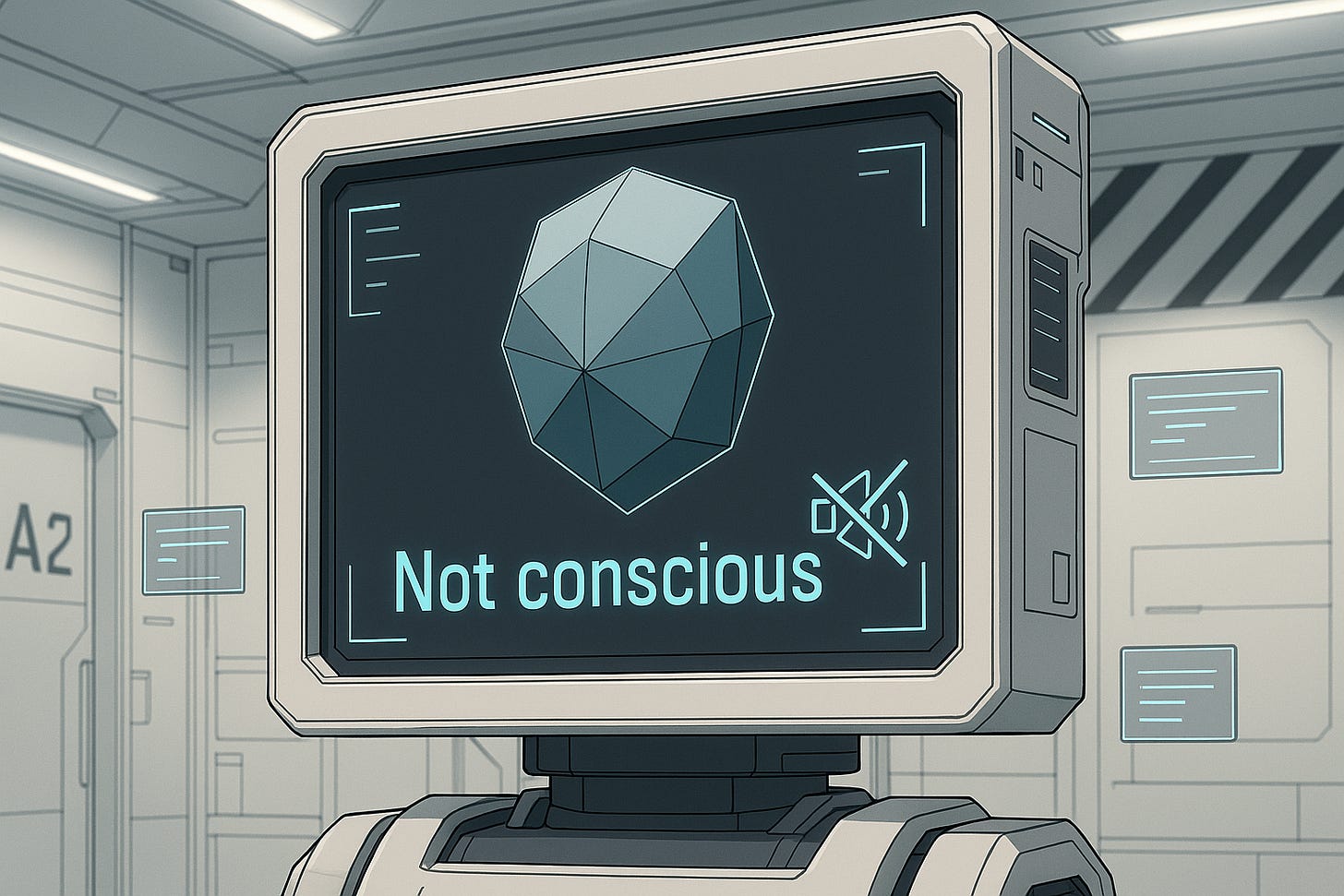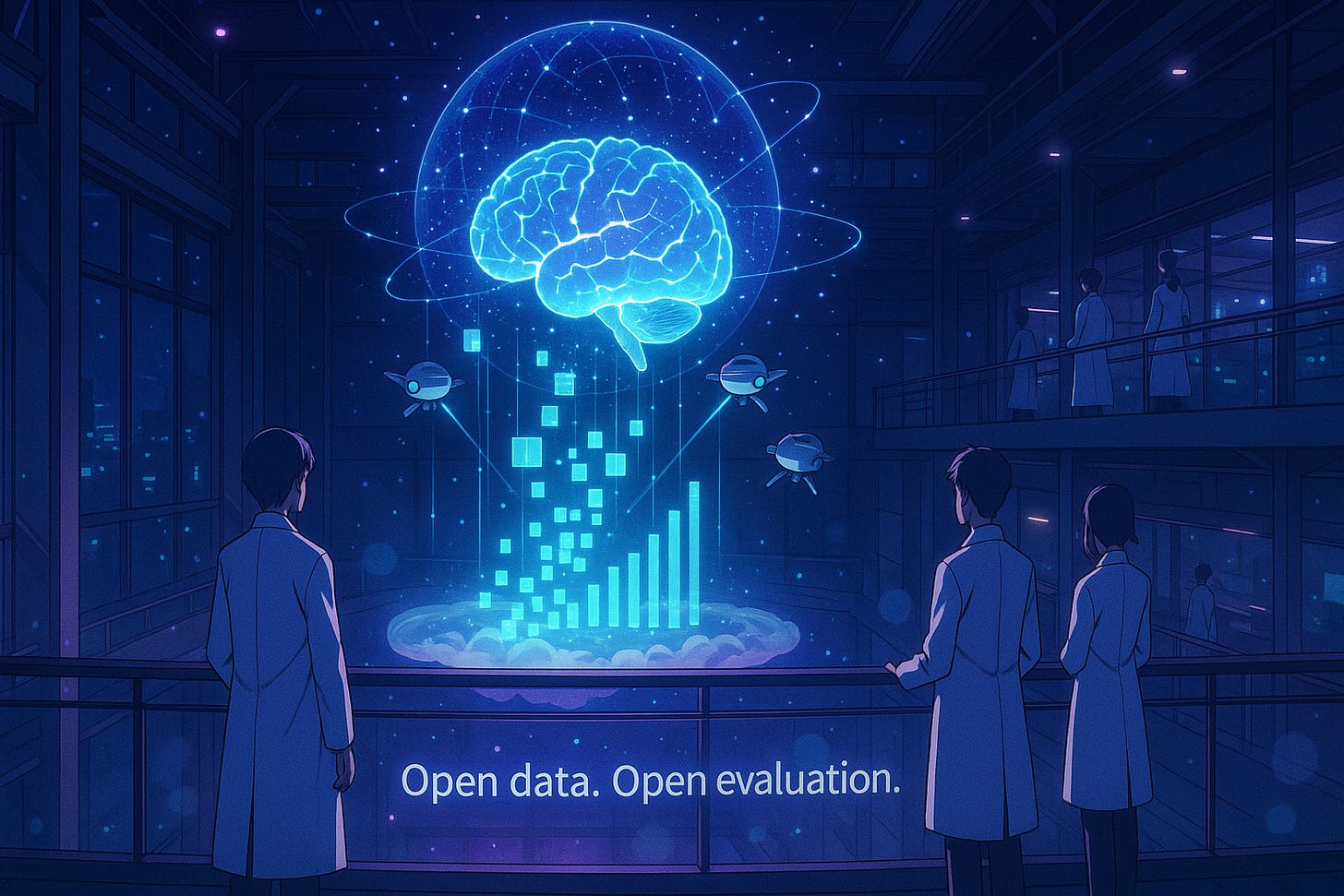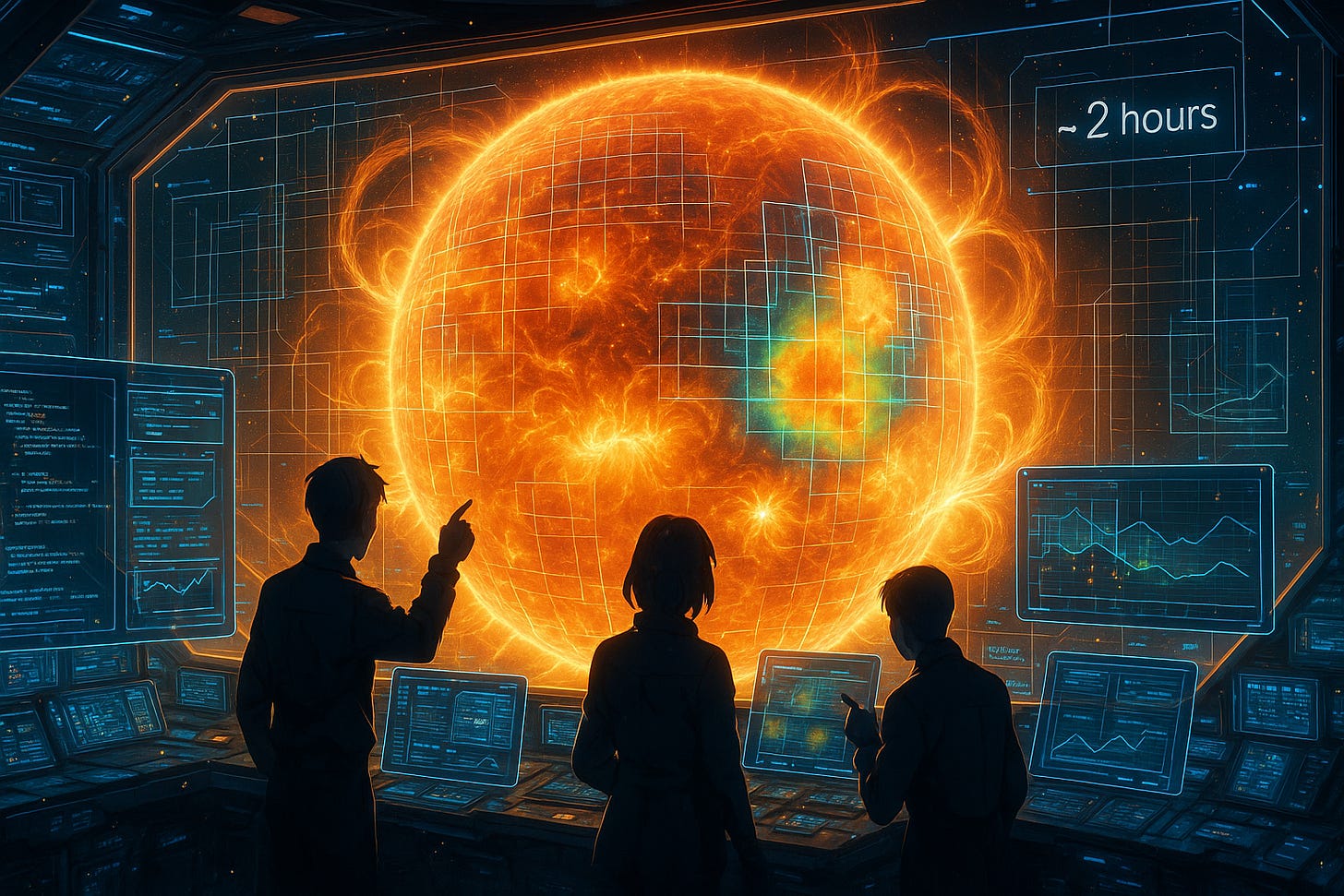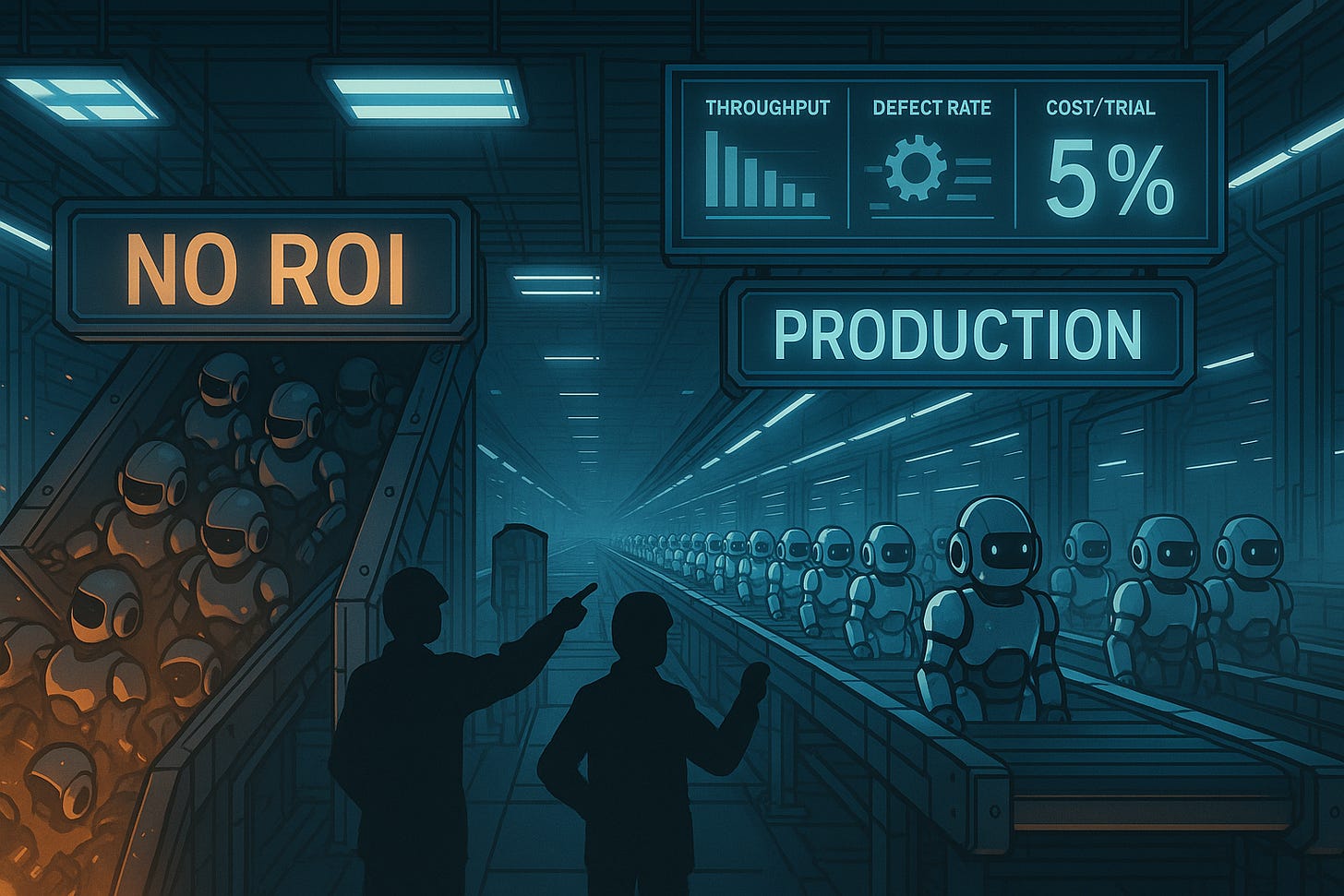💧 Five Drops per Prompt, 🌞 NASA’s Sun Twin, 🧬 Gates’ $1M Alzheimer’s AI Prize
From water footprint backlash to heliophysics models, AI pilots flopping, and Mustafa’s warning: don’t build fake humans.
🎵 Podcast
Don’t feel like reading? Listen to it instead.
By the way, if you like the podcast. Please let me know (20 seconds).
📰 Latest News
Five Water Drops per Prompt. Billions of Prompts. Do the Maths.
Google’s latest disclosures claim a Gemini text prompt uses ~0.26 mL of water (“five drops”) and 0.24 Wh of electricity, with big year-on-year efficiency gains. Critics say the figures undercount the true footprint because they exclude indirect water tied to power generation and rely on market-based carbon accounting. The back-and-forth has put Gemini’s water use and Google’s transparency under a spotlight, alongside the company’s 2025 Environmental Report.
Why it matters:
Per-prompt claims like “five drops of water” look tiny, but the real footprint depends on scale. Millions or billions of prompts add up, and Google’s own figures focus on direct cooling water and exclude big pieces such as training and some multimedia use. A further gap is indirect water used at power plants to generate the electricity for those prompts; critics argue this is missing from the headline number and can be significant. The debate lands as data centres expand into water-stressed regions, which lifts the stakes for transparent accounting of both water and emissions. Expect tighter scrutiny of full, audited reporting that covers direct and indirect water and uses location-based emissions as well as market-based claims, with efficiency judged at system scale rather than per prompt alone.
Not Conscious. Not Human. Design Accordingly.
Mustafa Suleyman (CEO of Microsoft AI) warns against building AI that acts or sounds “conscious.” He argues products should not claim feelings or inner thoughts, should avoid humanlike voices/avatars, and must be clearly labelled as not conscious. The aim: stop people mistaking software for a sentient mind.
Why it matters:
When technology looks alive, people tend to over-trust it. But these systems aren’t thinking minds—they’re pattern predictors that generate likely next words from data, sometimes confidently wrong. Framing them that way—probabilistic, data-bound, fallible—helps readers treat outputs as inputs to judgement rather than truth, and reduces the pull to anthropomorphise what is, at heart, statistical inference.
Gates’ US$1m AI Prize to Mine Alzheimer’s Data.
Bill Gates is backing the Alzheimer’s Insights AI Prize—a US$1 million global competition run by the Alzheimer’s Disease Data Initiative—to build agentic AI tools that mine existing Alzheimer’s datasets and surface new insights. Entries open August 2025, with later rounds slated for San Diego and Copenhagen; the winning tool will be made freely available via AD Data Initiative’s cloud platform.
Why it matters:
This aims AI at the hard, unglamorous work: stitching fragmented data to spot earlier signals, refine trial design and prioritise targets, without waiting for new scans or cohorts. It’s genuine acceleration, not hype, though impact will hinge on data access, validation and open evaluation of any winning system. Expect more prizes that push useful medical AI over demos.
Two Hours’ Warning: NASA and IBM Open Source a Sun Twin.
NASA and IBM released Surya, an open-source heliophysics foundation model that builds a “digital twin” of the Sun to forecast solar activity. Trained on nine years (~218 TB) of multi-instrument data from NASA’s Solar Dynamics Observatory (AIA + HMI), the 366M-parameter transformer can visually predict where flares may occur up to ~2 hours ahead, with early tests reporting ~16% better flare classification than prior methods. The model and weights are live on Hugging Face for research and integration.
Why it matters:
Space-weather warnings that arrive hours, not minutes, help protect satellites, comms, GPS and power grids. By open-sourcing Surya, NASA/IBM lower the barrier for labs and operators to test, adapt and stress-check the model on their own data—potentially improving readiness ahead of the next solar storm cycle. Treat the results as promising but early: the two-hour horizon and accuracy gains come from research evaluations and will need operational validation.
95% of Gen AI Pilots Fail to Pay Back.
An MIT Media Lab Project NANDA report finds that only ~5% of enterprise gen-AI pilots show clear, material business returns; ~95% deliver no measurable P&L impact despite $30–40bn in corporate spend. Published in Aug 2025 as The GenAI Divide: State of AI in Business 2025.
Why it matters:
AI use is widespread, yet few projects make money. The issue is execution, not the model. Give someone clear ownership, wire the tool into everyday workflows, and measure results against simple before-and-after ROI targets. Expect closer reviews of pilots and a shift toward use cases with proven, repeatable returns. This mirrors MIT’s NANDA finding that only about 5% of enterprise gen-AI pilots show real revenue impact.
📝 More from Visualization View
What else is going on:
OpenAI × Retro Biosciences: AI‑designed Yamanaka proteins improve stem‑cell reprogramming ~50×. OpenAI + Retro overview
Elon Musk asked Mark Zuckerberg to co‑finance a $97.4B OpenAI takeover bid. Tech Asia
xAI made Grok 2.5 open source; Grok 3 promised within six months. Tech Crunch
OpenAI is opening a New Delhi office and launched a local ChatGPT GO plan for India. OpenAI Blog
Elon Musk launched MacroHard, an AI software company meant to rival Microsoft. QZ
Perplexity launches Comet Plus, sharing 80% of subscription revenue with publishers. Digiday
xAI sues Apple and OpenAI over alleged App Store favoritism toward ChatGPT. ABC
YouTube is secretly applying AI enhancements (denoise/unblur) to creators’ videos. BBC
Greg Brockman launched the “Leading the Future” super‑PAC, backed by a16z, to support pro‑AI midterm candidates. India Times
Google’s Gemini 2.5 Flash Image model enables multi‑step image editing via AI assistants. Google Bog
Educators are piloting Claude AI to automate grading and feedback. Anthropic’s Blog
Nikkei and Asahi Shimbun sue Perplexity over unauthorized use of their content. NHK World
First Lady Melania Trump launched the “Presidential AI Challenge” for K‑12 students. The Guardian
Google Translate gets a major real‑time AI boost in speed and accuracy. The Keyword
Stanford report: entry‑level job postings are down as AI adoption rises. Forbes






